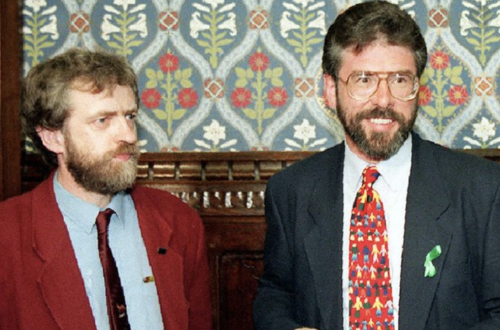This is guest post from Chris Moos
Who has come up with the most ludicrous response to the Charlie Hebdo massacre?
Having reviewed three weeks of commentary from British journalists, politicians, commentators and campaigners, there is a strong field of contenders.
Ladies and gentlemen, I present the reflexive smearer, the moral relativist, the condescending bonhomme, the politician-cum-theologian and the winner of the competition, the Islamist abuser.
1) The reflexive smearer – “I condemn the murders, but Charlie Hebdo is racist”
As Liliana Bird puts it succinctly, “they’re not racist just because you’re offended“. However, as it is easier to construct a moral equivalence between the murderers and their victims when the latter are morally at fault, spurious allegations of racism were widely employed by the reflexive smearer.
As David Paxton points out, this usually came with an attempt at “root-causism“, a contextualisation of the murders in “wars against the Muslim world”, and an in-depth investigation of the alleged views, sensitivities and ‘culture’ of the murderers.
Since most British commentators have no understanding of French satire, politics, or culture, they naturally did not afford the same courtesy to Charlie Hebdo. As a result, the French publication that has done the most to fight the fascist Front National, the Catholic Church, and anti-immigrant policies is presented as a “racist” publication that “had it coming”.
For the reflexive smearer, the murderers were anti-racist activists – wrong in their choice of means, but right in their choice of target.
2) The moral relativist – “Publish anti-Semitic cartoons, or you are a hypocrite”
False equivalences and whataboutery were the natural favourites of the moral relativist. For this to work, they simply needed to argue that Charlie Hebdo cartoons are racist or anti-Muslim (see above), then point to hate speech laws, and jump to the conclusion that those only protect Jews, not Muslims. As Glen Greenwald has bitterly complained, “why aren’t free speech crusaders calling for publication of anti-Semitic material in solidarity?”.
The tactic is as clear as it is transparent. By creating a false equivalence between the satire of religion and hate speech against minorities, one can easily dismiss the former as the latter, and then use this to fuel a sense of grievance among Muslims. At the same time, this fits neatly into the world of anti-Semitic conspiracy theories, which is – not surprisingly – a welcome by-product for the moral relativist.
The only question the moral relativist cannot answer is how many anti-Semitic cartoons a newspaper would have to publish to gain their approval for satirising Islam and Islamists.
3) The condescending bonhomme – “If you satirise Islam, you attack Muslims”
True to Bertrand Russell’s idea of the “superior virtue of the oppressed”, condescending bonhommes claim to champion those who they deem to be oppressed.
This rationale was especially popular amongst the British reactionary Left, and of course closely related to the previous responses. Never mind that Charlie Hebdo did not attack Muslims, but satirised the ideology of Islamism and the belief system Islamists are using to subjugate Muslims.
Never mind that as an anarchist magazine, Charlie Hebdo has consistently defended minorities, particularly Muslims, against attacks from the far-Right. For the condescending bonhomme, a good narrative counts more than evidence.
Neither does he think that in order to participate equally in society, all citizens should have their beliefs and ideologies scrutinised. As Islamism, Islam, Muslims and citizens from Muslim backgrounds are essentially the same for the condescending bonhomme, he thinks it is actually a moral imperative to conflate people and beliefs.
While his conservative counterpart is deeply committed to the “us vs. them” narrative, the condescending bonhomme thinks in terms of “them vs. us”, usually in blocks of “1.6 billion Muslims”.
As a result, the condescending bonhomme promotes the stereotype of the ‘Muslim savage’ that just cannot control his emotions, the very same stereotype he purports to fight.
4) The politician-cum-theologian – “Murder has nothing to do with Islam”
In a country where identity politics are seen as essential to “social cohesion” and conservatives and leftists alike deem it their task to create, reinforce and police homogenous “faith communities”, the contemporary politician has naturally become an expert in all things religious.
The politician-cum-theologian knows that is not only his right, but his duty to tell people what religion, and specifically Islam, is really all about. That is, only the good things, never the bad ones.
My friend Kiran Opal has even invented a new word for this phenomenon: “kuffarsplaining“, or “telling Muslims (or ex-Muslims) that you, as a Western Non-Muslim, knows what Islam ‘really says'”.
By conclusion, this means of course that the murderers were not doing what they said they were doing – murdering the Charlie Hebdo journalists to “avenge the prophet Mohammed“.
No matter how much evidence to the contrary, the politician-cum-theologian wants to maintain his illusion that state multiculturalist and multifaithist policies are part of the solution, not the problem.
5) The Islamist abuser – “You can’t challenge us – but we can abuse you”
If you think that the previous responses are already ludicrous enough, please bear with me as I introduce you to the world of the Islamist abuser. Although there is no shortage of Islamists with ludicrous responses to the Charlie Hebdo massacres, I will focus on two organisations that some in Britain will be familiar with.
The Islamic Education and Research Academy (iERA) and 5pillars are well renowned outlets for Islamist hate preachers. While the former is currently under investigation by the Charity Commission for its promotion of extremism, the latter regularly features writers from anti-Semitic organisations such as Hizb-ut Tahrir.
Ever since the beginning of the investigation, iERA has been struggling to rebrand itself as more palatable. Unfortunately for them, the project is not going well. Thus, in the wake of the Charlie Hebdo massacre, the iERA has teamed up with Dilly Hussain from 5pillars to launch a new campaign called “Don’t hate, debate!“.
Dilly Hussain starts off the video:
“In light of recent events in Paris, which has (sic!) led to the unfortunate death of ten journalists, again Muslims find themselves at the centre of attention regarding the whole freedom of speech debate and whether the prophet Mohammed should be satirised. […] How did freedom of speech become the right to offend, or the freedom to insult? And what does that mean for the basic interactions between humans?”
Indeed, how has freedom of speech become the “freedom to insult”? Luckily, Dilly Hussain, is in the best possible position to answer that question. When he is not editing articles for 5pillars, Dilly Hussain feels free to abuse, insult, humiliate and harass those who do not share his brand of Islamism. As with all Islamists, his preferred targets are Muslim minorities, Muslims who reject Islamism, and particularly Muslim women.
In Dilly Hussain’s world, “monkeys have [a] more legitimate claim to Islam than Ahmadis“. Women who question his quest for a “caliphate”, where non-Muslims are second-class citizens and women can be stoned for adultery, are referred to as “fat cows”, “fatties”, “pissheads, drunken liberal garbage” and “coconut sellouts“.
But Dilly Hussain’s greatest outbursts of hate are reserved for Muslim women, who he calls “Muslims” in inverted commas, or simply “airheads“. On the other hand, Muslims who challenge Islamists are “Uncle Tom sell outs” (see also here), “chamchas” (ass-kissers), the racist term “coconuts” (see also here), “apostates” (which is an implicit death threat for many Muslims) or “najus” (ritually unclean).
Maybe Dilly Hussain should have listened to his fellow campaigner Hamza Tzortzis of iERA, who urges us to
“use good speech. God doesn’t love the actions of evil speech.” […] “Just be human. Because a civilised society isn’t a society that basically degrades each other, defames and dishonours, and uses vile speech. We are human beings. So let’s be human beings.
Now, you might think that is an odd statement to come from the man who has said that “we as Muslims reject the idea of freedom of speech, and even the idea of freedom“. Clearly, requiring others to debate without insulting, defaming and “dishonouring” people, let alone threatening their well-being, is a noble endeavour.
That is, if it had not been Tzortzis himself who has called for the death penalty for apostasy and blasphemy through “painless beheading“, says it is acceptable to have sex with nine-year old girls as long as they are “physically fit” and “emotionally and mentally ready”. Again, Muslim women are a particular target for Hamza Tzortis. Most recently at an event at Queen Mary University, he has told “sisters” to “forget uni, just learn about your deen”.
Tzortzis’s and Hussain’s response to the Charlie Hebdo massacres is thus surprisingly honest. While they insult, denigrate, humiliate, bully, harass those who they deem not be Muslim, or not the “right” kind of Muslim, they refuse to have their ideology to be exposed, ridiculed and satirised through the free expression of their victims.
And this is the quintessential response to the Charlie Hebdo massacre. Islamists ask for respect, while awarding none. They ask for historical figures to be immunised from satire, while mocking and denigrating anyone who does not share their beliefs. They humiliate anyone who opposes them, but ask for the right not to be offended.
If there is one lesson from the Charlie Hebdo attacks, it is this one: Islamists do not want to debate, they want to hate.
No amount of smearing, relativising, condescending, kuffarsplaining, or self-censorsoring will change that.


